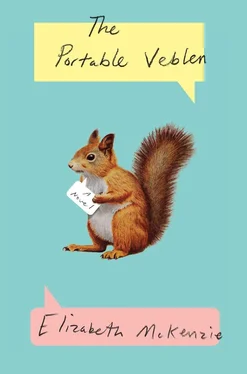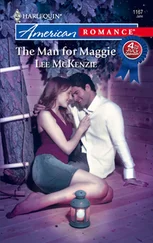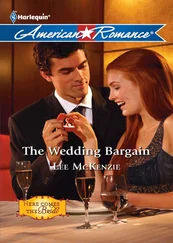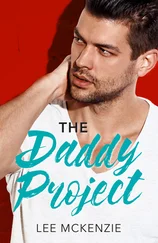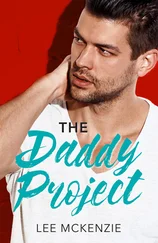Had he been born at another time, been drafted and required to serve, would he have mustered courage? In his lifetime, a man needed a test, and Paul thought: This one is mine . With a crooked smile he imagined the musical that would come of it. Greenslopes! The patients in their hospital gowns would come to life in their cots, and perform spirited ronds de jambe in the aisles.
Just then, a squirrel spiraled down the heavy trunk of the magnolia, nattering across the spotty lawn in fitful, myoclonic jerks. A trail of Fortuna cigarette boxes led his eye to three weary-looking women in white uniforms and blue hairnets lumped on a brick wall in smoke. Then an electric buzz drew his attention to the road, where an obese gentleman careened along in a wide, customized wheelchair, waving an orange flag on a bobbing wand. Along the sidewalk came a woman in a black tank top under her denim jacket, tattoos rising like thunderheads over the mountains of her breasts, carrying a ziplock bag packed with white-bread sandwiches. To lend some decorum to the tableau, Paul stood tall, dusted off his jacket, and turned to take the path from the lot to the main building as a limping janitor pushed a cart across the sidewalk at the drop-off circle.
A low band of cement-colored haze hung snugly over the peninsula. He was early, did not want to stand in front like a doorman; he changed direction, taking a path freshly decked with necky red cyclamen submerged in a carpet of woodchips.
For here he was, the man who would lead Hutmacher into a new era. Under his stewardship, the clinical trials program would surpass all expectations. Here at the VA, the new wing, filling daily with volunteers, would become a model of its kind. Physicians received Nobel prizes for innovations like his. They had body parts named after them, such as Kernohan’s notch and Bachmann’s bundle and the sphincter of Oddi. Not to mention the fissure of Rolando and the canal of Schlemm and the zonule of Zimm! Dr. Vreeland helped eradicate once and for all the effects of traumatic brain injury sustained in combat. Focal or diffuse, of no matter to Vreeland. Among the many types of experimental subjects, Vreeland popularized the use of the squirrel, as they tended to invade attics and make a nuisance and rile up generous-hearted women in their defense!
Heading back into the corporation yard, he passed an earthmover stuck like a mammoth in a lake of mud, and reflected on how until recently he’d been just as mired by the failure of his nerve. That is, until he met Cloris, at the start of a run of unprecedented luck.
There he was at work one ordinary afternoon last September, slumped in the elevator, his cart much like the janitor’s, thinking about how he’d run out of toilet paper that morning and how he’d have to stop to buy more on his way home, with no Veblen in his life, he had yet to meet her, when a tall, blond woman of around thirty-five tripped open the closing doors with her long striding legs and took her place at his side. It was a memory he’d committed to the permanent circuits. The way she leaned over, read his name on his lab coat, and made no foolish sentimental comments about the mixed specimens on his cart always struck him as proof of a giant leap in his sex appeal.
“Dr. Vreeland, why don’t you ask a resident to take your cart?”
He grinned, tossed off something about finding it difficult to delegate.
Her eyes gleamed with the thrill of discovery. “My father says, ‘If you want something done, ask a busy man.’” She had just visited a dear friend, very ill, maybe she should have a coffee before hitting the road, would he like to come tell her about his work? She was with Hutmacher Pharmaceuticals, and loved to keep abreast of the latest developments. He stood taller. At the next floor he jettisoned the cart.
“How long have you been here?” In the cafeteria they settled in plastic chairs.
“My third year. Are you a rep or something?” he asked with a mischievous poke, because industry reps were no longer allowed to do their repping at the School of Medicine, and he’d signed his share of SIIPs (Stanford Industry Interactions Policy), which covered gifts from the industry, access of sales and marketing reps to the campus, and other strategies of coercion the industry was apt to deploy.
“You could say that,” she responded. “You could say I’ve been repping for them since the day I was born.”
Moments later, when he realized over his plain black coffee that he was actually speaking to a Hutmacher, namesake of one of the largest pharmaceutical companies in the world, a modern empire, she a virtual princess, he gulped and scalded his esophagus, and worse, felt his testes shrivel to the size of garbanzo beans. To his shame, he really believed the wealthy were superior. In a Darwinian sense, they had to be. He could read the story of past conquests and brutal takeovers in her bone structure, her long arms and legs, her narrow shoulders, her high cheekbones and forehead, her elegant hands. The marriages that had led to her creation had been of alpha males and glorious females, and you wouldn’t find the peasant’s short calf or hunched trunk among them.
Meanwhile, he descended from a rough mix of Dutch farmers, Belgian carpet salesmen, Irish gamblers, and Presbyterian prigs, and he wondered what use she could possibly have for him.
“But as I said, I’m not here on business. I was visiting a sick friend.”
“I’m sorry,” Paul said.
“Thank you. Now more about you.”
“But—” He laughed at himself. “Shouldn’t you be skiing in Zermatt, or whatever heiresses are supposed to be doing?”
“That’s next January. Tell me about your work!”
Who had ever asked? The subject of his study was his gold reserve, burdening his heart. “Well, I’m working on traumatic brain injury. I’ve been developing a tool.”
“A tool? Tell me more,” said Cloris, with such prosperous vitality he felt all underfunded and desperate and teenaged again.
“To make it short: I’ve found a way medics on the line can take a proactive role in preventing permanent brain injury.”
“That’s terrific,” said Cloris. “How?”
“Well.” Was he pitching his tool? “You want me to tell you now?”
“Please!”
He nodded, and scalded another quadrant of his taste buds. “Let’s see. Where to start. The body’s response, you know, to just about any stimuli, is swelling—”
“I’ve noticed.”
His nostrils flared. “To injury. Like my burned tongue right now. The body swells.”
“Yes, it does, doesn’t it?”
“The blood rushes, it rushes to the — geez.” He laughed, looking down. “Okay. I have no idea what we’re talking about here.”
“Don’t stop.”
He cleared his throat. “So the brain. If the brain is injured and swells, the skull, I’m sure you know”—he made his hands look like a clamp—“holds it in, and—” His neck felt hot. “There’s pressure, lots of pressure.”
“I understand,” said Cloris.
“The pressure builds—”
“—and builds—”
“—cutting off circulation—”
“Oh, my.”
He bestowed a frank, open gaze upon her, and cleared his throat. “Anyway, the cells stop getting oxygen, which sets off a chain reaction called cell suicide, technically called apoptosis, but if a craniotomy — opening up the skull — can be performed immediately, releasing the pressure, to make room for the swelling”—Paul shifted in his seat—“then no more cell suicide, and under the right circumstances recovery is achievable, up to eighty, ninety percent.”
“So how could this be done?”
“Here’s the problem. Say you’re a medic in combat, and you need to get your injured troops to the closest field hospital, but for a thousand reasons, you can’t do it fast enough. This happens all the time. You’ve made your determination of brain injury—”
Читать дальше
Конец ознакомительного отрывка
Купить книгу
